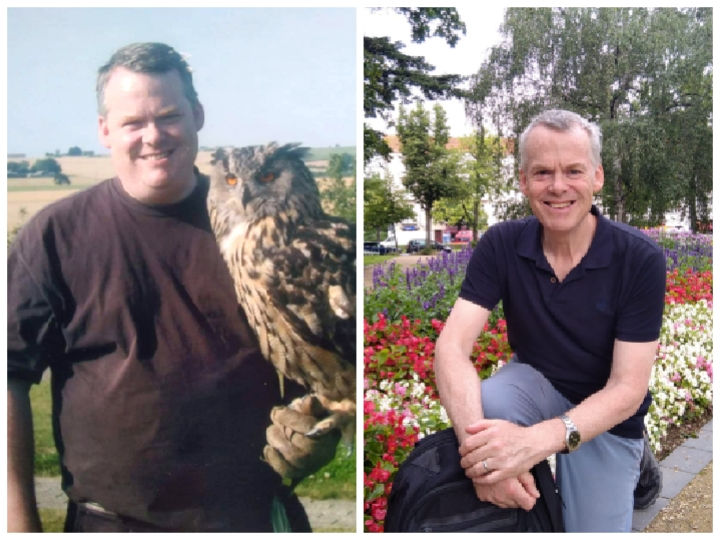The Stigma that is Snoring
- Henry & Henry

- Jan 13, 2023
- 4 min read
For as long as I can remember, I've been a snorer.
When I was a young boy, my dad once likened the sound of my snoring to that of a sawmill!
It may be considered surprising, therefore, that even though my older brother shared a bedroom with me for 18 years, I can't recall him ever complaining, or even remarking on my snoring. Not once. I've never really talked to him about it, since it's a subject I've tended to shy away from discussing openly, at least until recently, owing to a deeply embedded sense of embarrassment. Perhaps, in my brother's case, his bulletproof defences in the face of the nightly bombardment that he was subjected to was down to the fact he's always been a heavy sleeper. It's fair to say that if you were to award medals for sleeping, he'd definitely be on the winner’s podium!

Unfortunately, not everyone’s defences have proven to be as impregnable. People who have shared a room with me over the years have complained about their fruitless attempts to sleep, verging on desperation as they've tried to block out the noise of my snoring. Once, attending a work conference where cost-cutting meant I was obliged to share a room, I woke up to find a work colleague no longer lying in his bed. I initially assumed he'd gone for an early morning walk or gone down to breakfast. Instead, I found him lying on the floor at the far side of his bed, the reason, as he explained later, being that it was the only way he was able to dampen the noise.
It's hardly surprising, then that for me, my snoring grew to become a stigma. I hated the thought of having to share a room and I have always strived to do everything I could to avoid it. Drinking alcohol made it even worse. Alcohol tends to make us breathe harder and faster and for those who snore, this can further amplify the sound. Eating a large meal late in the evening can also contribute towards snoring. I therefore pity those unfortunate souls who had to share a room with me at various company sales conferences, where a 3-course meal followed by a visit to the bar until the early hours of the morning was a regular feature.
When I married Annette, the opportunity for a 'perfect storm' presented itself (no pun intended). Annette has suffered chronic sleep problems for close to three decades. Sleep is especially precious when you have insomnia, as any fellow sufferers will attest to. A partner who snores loudly could therefore be construed to be a potential threat to marital bliss. Fortunately, we were able to work around it - a spare bedroom can come in very handy when things begin to get out of hand!
I'm happy to say that the problem has now been largely resolved. After a lifetime of snoring, I can now reclassify myself as an 'occasional snorer'. And when I do snore, Annette informs me that it's generally softer than it used to be, and for shorter periods. It rarely disturbs her sleep and relocating to another room is mostly a thing of the past.
I can't describe how much this means to me, because not only does it mean that Annette is rewarded with improved and uninterrupted sleep, I am too. I'm now aware that my snoring was waking me up frequently and I suspect I was suffering from episodes of sleep apnea.
Sleep apnea is a potentially serious condition where the airways can literally collapse and lead to the sufferer being starved of oxygen for prolonged periods of time. Left unchecked, this can lead to high blood pressure, abnormal heart rhythms and adverse cardiovascular consequences, even sudden death. As Patrick McKeown highlights in his book 'The Breathing Cure', a 2015 study(1) found that patients with obstructive sleep apnea are more likely to die during the night than people without the disorder. It can also endanger others, since the sleepiness it induces during daytime has been known to be the cause of accidents. The worrying factor is that it often goes undiagnosed and untreated.
It's important to point out that snoring isn’t limited to any particular age group or gender. If a child is snoring by age 8 and the problem is untreated, there’s a very high chance, around an 80% chance, that the child will develop a permanent 20% reduction in mental capacity(2)
In women, snoring is also associated with an increased risk of sleep apnea which becomes more likely after menopause, increasing by 200%. This appears to be a result of the drop in hormones, particularly progesterone which confers protective effects in women, (although when it rises in the luteal phase of menstruating women, it stimulates breathing and can lead to hyperventilation which in turn, contributes to PMS symptoms).
It is highly relevant, therefore, that any sleep disordered breathing is addressed. Snoring, especially mouth snoring, is one of the most obvious signs of a problem. Luckily, for the majority of people, it’s one of the easiest to resolve.
What, then, was it that enabled me to largely resolve my snoring problem?
For this, I have to thank the superb Functional Breathing Instructor Program developed by the aforementioned Patrick McKeown, a world-renowned breathing expert, as well as Annette for introducing me to and enthusing me about the whole subject of functional and dysfunctional breathing in the first place. Patrick's program taught me everything I needed to know to relearn correct breathing and employ practices that have helped not only to resolve my nocturnal breathing problems, but also to improve my breathing during the day, as well as reduce breathlessness on exertion. It's made a huge difference to my life and by becoming an Instructor, I'm delighted I can also help others to experience similar benefits.I’m also delighted to report that Annette has employed the same practices that have both improved her insomnia and her post-covid breathlessness and fatigue.
If you'd like to know more about the breathing re-education programs Annette and I each now jointly run, you can find further information here
Graham Henry.
References
1 Mansukhani MP, Wang S, Somers VK. Sleep, death, and the heart. Am J Physiol Heart
Circ Physiol. 2015 Sep;309(5):H739-49. doi: 10.1152/ajpheart.00285.2015. Epub 2015 Jul
17. PMID: 26188022; PMCID: PMC4591406.
2 Catalano P, Walker J (2018) Understanding Nasal Breathing: The Key to Evaluating and
Treating Sleep Disordered Breathing in Adults and Children. Curr Trends Otolaryngol
Rhinol: CTOR-121. DOI: 10.29011/ CTOR-121. 000021



)_20230830_134131_0000.png)



Comments